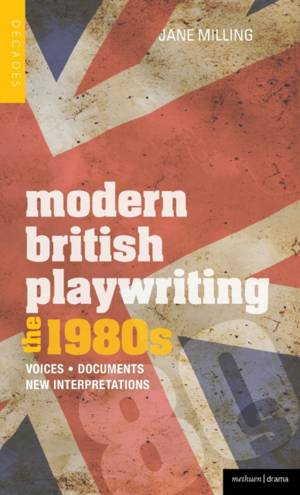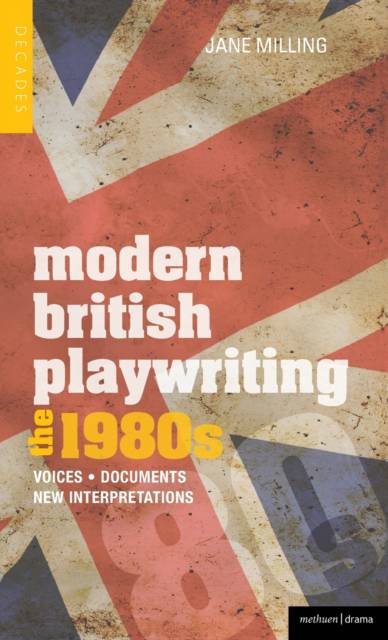
- Afhalen na 1 uur in een winkel met voorraad
- Gratis thuislevering in België vanaf € 30
- Ruim aanbod met 7 miljoen producten
- Afhalen na 1 uur in een winkel met voorraad
- Gratis thuislevering in België vanaf € 30
- Ruim aanbod met 7 miljoen producten
Zoeken
€ 118,95
+ 237 punten
Omschrijving
Modern British Playwriting: The 1980s equips readers with a fresh assessment of the theatre and principle playwrights and plays from a decade when political and economic forces were changing society dramatically. It offers a broad survey of the context and of the playwrights and companies such as Complicité and DV8 that rose to prominence at this time. Alongside this it provides a detailed examination based on fresh research of four of the most significant playwrights of the era and considers the influence they had on later work.
The 1980s volume features a detailed study by four scholars of the work of four of the major playwrights who came to prominence: Howard Barker (by Sarah Goldingay), Jim Cartwright (David Lane), Sarah Daniels (Jane Milling) and Timberlake Wertenbaker (Sara Freeman).
Essential for students of Theatre Studies, the series of six decadal volumes provides a critical survey and study of the theatre produced from the 1950s to 2009. Each volume features a critical analysis of the work of four key playwrights besides other theatre work from that decade, together with an extensive commentary on the period. Readers will understand the works in their contexts and be presented with fresh research material and a reassessment from the perspective of the twenty-first century. This is an authoritative and stimulating reassessment of British playwriting in the 1980s.
The 1980s volume features a detailed study by four scholars of the work of four of the major playwrights who came to prominence: Howard Barker (by Sarah Goldingay), Jim Cartwright (David Lane), Sarah Daniels (Jane Milling) and Timberlake Wertenbaker (Sara Freeman).
Essential for students of Theatre Studies, the series of six decadal volumes provides a critical survey and study of the theatre produced from the 1950s to 2009. Each volume features a critical analysis of the work of four key playwrights besides other theatre work from that decade, together with an extensive commentary on the period. Readers will understand the works in their contexts and be presented with fresh research material and a reassessment from the perspective of the twenty-first century. This is an authoritative and stimulating reassessment of British playwriting in the 1980s.
Specificaties
Betrokkenen
- Auteur(s):
- Uitgeverij:
Inhoud
- Aantal bladzijden:
- 352
- Taal:
- Engels
- Reeks:
- Reeksnummer:
- nr. 3
Eigenschappen
- Productcode (EAN):
- 9781408182130
- Verschijningsdatum:
- 20/12/2012
- Uitvoering:
- Hardcover
- Formaat:
- Genaaid
- Afmetingen:
- 137 mm x 218 mm
- Gewicht:
- 453 g

Alleen bij Standaard Boekhandel
+ 237 punten op je klantenkaart van Standaard Boekhandel
Beoordelingen
We publiceren alleen reviews die voldoen aan de voorwaarden voor reviews. Bekijk onze voorwaarden voor reviews.








